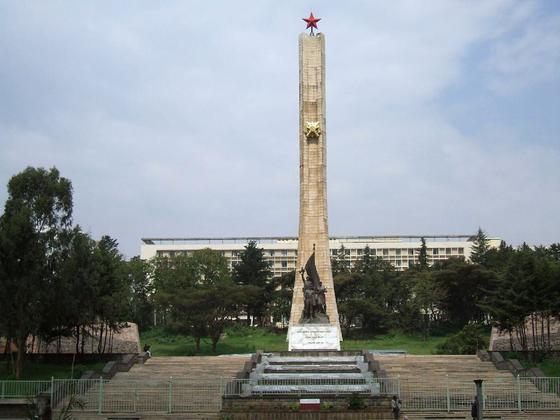US slaps sanctions on DPRK companies
According to the Associated Press (Via CBS):
The United States is imposing sanctions on several Chinese, Iranian and North Korean companies for violating arms export regulations governing missile technology and other proliferation activities.
The sanctions are largely symbolic as they bar the companies from trade with the U.S. that they were not likely involved in. Although they were in the works for some time, the Obama team signed off on the sanctions on Jan. 21, a day after it took office, signaling a continuing tough stance from Washington on weapons technology transfers.
U.S. Slaps Sanctions On Overseas Companies
Associated Press (via CBS)
2/2/2009
Here is a link to the text from the US Federal Register.
Below is a summary:
SUPPLEMENTARY INFORMATION: Pursuant to Section 73(a)(1) of the Arms Export Control Act (22 U.S.C. 2797b(a)(1)); Section 11B(b)(1) of the Export Administration Act of 1979 (50 U.S.C. app. 2410b(b)(1)), as carried out under Executive Order 13222 of August 17, 2001 (hereinafter cited as the “Export Administration Act of 1979”); and Executive Order 12851 of June 11, 1993; the U.S. Government determined on January 15, 2009 that the following foreign entities had engaged in missile technology proliferation activities that require the imposition of missile sanctions described in Section 73 of the AECA (22 U.S.C. 2797b) and Section 11B of the EAA (50 U.S.C. Appx 24710b) on these entities:
—Korea Mining and Development Corporation (KOMID) (North Korea) and its sub-units and successors
–Mokong Trading Corporation (North Korea) and its sub-units and successors
–Sino-Ki (North Korea) and its sub-units and successors
And from the Donga Ilbo:
This is the eighth time for the mining company, which has been closely watched by Washington as an exporter of Pyongyang’s ballistic missiles and conventional weapons, to get U.S. sanctions.
The company was slapped with sanctions in 1992, 1998, 2000, 2003, January and August in 2007, and August last year.
Ex-IRA figure faces US counterfeiting charge
According to the Associated Press:
Irish police arrested former Workers Party leader Sean Garland, 74, outside the entrance of the fringe party’s Dublin headquarters — more than three years after he jumped bail in the neighboring British territory of Northern Ireland while facing a similar U.S. extradition warrant there.
Garland had been living openly in the Republic of Ireland — which typically refuses to extradite citizens to face criminal charges outside the European Union — since he left Belfast and abandoned a bail of 30,000 British pounds (about $53,000 at the time) following his October 2005 arrest.
U.S. authorities that year indicted Garland with receiving, smuggling and laundering millions in “superdollars” — so called because of their expert design — that the government of North Korea allegedly began distributing in the late 1980s to weaken the American currency. If extradited and convicted, Garland could face up to five years in prison and a $250,000 fine.
Only one of the past two-dozen extradition requests from the U.S. Justice Department has been approved by Irish judges, who generally oppose extradition, citing America’s harsher sentences and penal system.
Under [Garland’s] leadership, the Workers Party appealed in 1986 to the Communist Party of the Soviet Union for funds. According to the 2005 U.S. indictment, Russian officials encouraged Garland and other Official IRA activists to take counterfeit U.S. $100 bills produced by North Korea.
Read the full story here:
Ex-IRA figure faces US counterfeiting charge
Associated Press
Shawn Pogatchnik
1/30/2009
NK Defectors’ Groups to Get US Gov’t Aid
According to the Korea Times:
The U.S. Department of State will directly provide groups organized by North Korean defectors here with financial support for the first time, according to reports Sunday.
Thus far, Washington has funded local groups working for improvement of North Korean human rights via the National Endowment for Democracy (NED), a private organization supporting freedom around the world.
The move was construed as part of increased U.S. efforts to shed light on humanitarian issues in the Stalinist state.
The State Department posted a notice on the Human Rights Democracy Fund (HRDF) last September and about 50 organizations reportedly applied for the program.
Among the beneficiaries, Free North Korea Radio and the Coalition for North Korean Women’s Rights were granted $500,000 and $300,000, respectively.
The groups will receive a certain amount of money every month for two to three years in accordance with their performance.
Kang Su-jin, founder and representative of the coalition, said she thinks that the U.S. department aims at nurturing North Korean defectors as future leaders through the direct funding.
An official of the department was quoted as saying on condition of anonymity by Radio Free Asia (RFA) that a total of $3 million has been set aside for the program.
But the official refused to elaborate on grantees, saying the issue was “very sensitive.”
Read the full story here:
NK Defectors’ Groups to Get US Gov’t Aid
Korea Times
Kim Sue-young
2/1/2009

